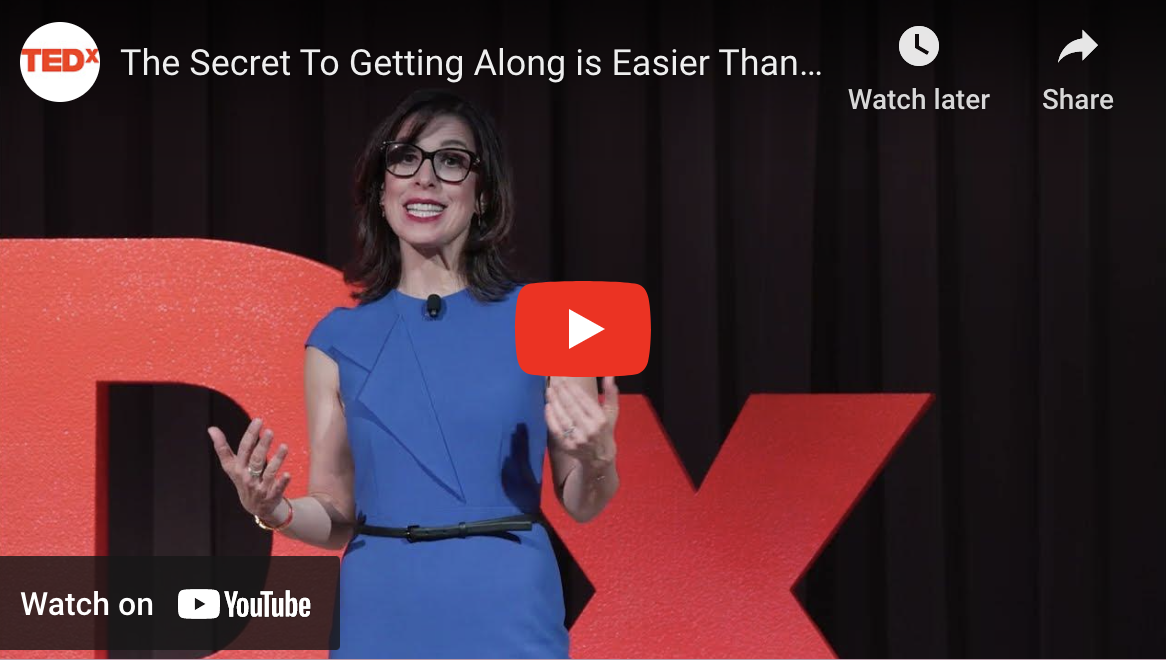Divorce Mediation Process to Use Online Meditation

Overview of the Online Divorce Mediation Process
The online divorce process can take several steps. The first step is to consult an attorney. There are times when couples choose to go through the divorce process without an attorney. However, it is highly recommended that you consult an attorney beforehand to ensure that you do everything correctly and to avoid any legal mistakes, just like you need a lawyer when facing any property or real estate dispute which cannot be handled by a layman by its own. The next step in the divorce process is to begin the discovery phase. During discovery, both parties are required to turn over all relevant documents and information related to the divorce. At this point, the divorce process is no longer based on the presumption that both parties are innocent. This is when the divorce process becomes much more complicated and, in many cases, more expensive. The final step in the divorce process is the mediation phase. During mediation, the divorce process is handled between the divorce mediator and the couple. All divorce mediation is confidential and can be conducted through various channels including phone, video chat, and online meetings. The divorce process can be complicated and overwhelming for those who are unfamiliar with the process. The process can be full of legal paperwork and decisions that can seem impossible to make. However, it doesn’t have to be a stressful experience. With a few simple steps, you can navigate the online divorce mediation process and make the best decisions for your family. This article will cover the basics of the online divorce mediation process and provide you with the information you need to make the process easier and less intimidating. You will learn about the different steps in the process, the benefits of working with a mediator, and the documents that are necessary to complete the process. By the end of this article, you will have a better understanding of the online divorce mediation process and be ready to make the best decisions for your family.
Benefits of Working with a Mediator
- Shared Expenses – All divorce mediation expenses are shared by both parties. There is no fee to use divorce mediation; the only cost is the time of the mediator. If one party is more expensive than the other, the party who takes longer to respond to the divorce process is responsible for the additional cost.
- Private and Confidential Communication – There are various ways to conduct divorce mediation, including phone, video chat, and online meetings. One of the big benefits of divorce mediation through online meetings is the privacy and confidentiality of the process. You don’t have to worry about who might overhear your conversation, and you can keep your communication protected with a private channel.
- Clear Direction – Choosing a divorce mediator can be a difficult decision. If you choose the wrong divorce mediator, you could end up with a divorce process that is not handled correctly and can end up costing you more money in the long run. Working with a divorce mediator can help you navigate the divorce process with clear direction and guidance from a neutral party.
- Confidentiality – The final benefit of working with a divorce mediator is the confidentiality of the process. All divorce information is confidential and not shared with anyone. If you choose to work with an attorney as well, all divorce information is kept confidential between the two parties.

Important Documents to Prepare
- Contract Between the Parties – This is important for any type of cohabitation or marriage. It’s a contract between you and your husband or wife detailing the terms of the marriage. In the event of a divorce, you will need this contract to go through all the terms of the marriage to determine child custody, child support, and alimony.
- Child Custody Agreement – If you and your husband or wife wants to share custody of the children, you will need to create a child custody agreement. Child custody is when one parent has legal custody and the other parent has physical custody.
- Child Support Agreement – If you and your husband or wife wants to share child support, you will need to create a child support agreement. Child support is money paid to the state every month by a parent to support the child.
- Agreement on Spousal Support – If you and your husband or wife wish to discuss spousal support, you will need to create an agreement on spousal support. Spousal support is money paid by one spouse to the other after the divorce.
- Property Settlement Agreement – If one party wishes to receive part of the property during the divorce, they will need to create a property settlement agreement. A property settlement agreement divides the property between both parties.
Steps to Begin the Online Divorce Mediation Process
- Consult an Attorney – This is where you will consult with your attorney about your divorce and all relevant issues and questions related to the divorce. Your attorney can also help you navigate the divorce process and make sure you take all the necessary steps to make sure your divorce is handled correctly.
- Draft Interrogatories to the Other Party – This is where you will draft the questions you will ask the other party during the divorce mediation process. Interrogatories are written questions from both parties that will be asked during the divorce mediation process.
- Draft Affidavits – This is where you will draft the affidavits that will be used during the divorce mediation process. An affidavit is an oath or declaration under oath that is sworn in truth and under penalty of perjury. Draft Interrogatory to Attorney – This is where you will draft the question for your attorney. An interrogatory is a request for information in a specific form.
- Draft Affidavit to Attorney – This is where you will draft the affidavit that will be used to support your case during the divorce mediation process. An affidavit is an oath or declaration under oath that is sworn in truth and under penalty of perjury.
- Draft Child Custody Agreement – This is where you will draft the child custody agreement. Child custody is when one parent has legal custody and the other parent has physical custody.
- Draft Child Support Agreement – This is where you will draft the child support agreement. Child support is money paid to the state every month by a parent to support the child.
- Begin Mediation – Once all the documents are drafted, it’s time to begin the divorce mediation process.
Knowing What to Expect During the Online Divorce Mediation Process
- Initial Meeting – During the initial meeting, you will meet with your divorce mediator to discuss logistics and set up a time to begin divorce mediation.
- Preparation – During the divorce mediation process, you will have to prepare for each session. You will have to draft the interrogatories, affidavits, and agreements, and have them completed before each mediation session.
- Recording – You will have to have your voice recorded so that the divorce mediator can edit the sound out and keep the recording. You will have to keep your voice track clean and free of background noise.
- Decision Making – During divorce mediation, you are expected to make decisions and negotiate with your spouse. You are not allowed to simply give up or ask for everything that you want.
- Resolution – At the end of each divorce mediation session, you will have to discuss the resolution that was reached. You will have to discuss the resolution with your spouse and decide whether you want to approve the resolution or negotiate further.

Tips for Navigating the Online Divorce Mediation Process
There are a few key things to remember as you navigate the online divorce mediation process. Knowing these tips will help you make the process more manageable, as well as lead to a quicker and more successful mediation. The first tip is to be patient. This is a process that can often feel very quick and confusing at first. However, the longer you spend in the process the more comfortable you will become with the process. The second tip is to be realistic. It is easy to get wrapped up in the fantasy of what a divorce should look like and forget that divorces rarely go the way you want them to. The reality is that divorce is a process, and while you can control some of the major decisions, you cannot control the outcome. Learn to accept the process and the outcome, and you will make better decisions for your family. The final tip is to keep strong relationships with friends and family throughout the process. Because divorce is a process that you have no control over, it is easy to get caught up in the stress and uncertainty.
Questions to Ask Your Mediator
During your first meeting with your mediator, you will likely find a few minutes to ask your mediator a few questions. Before you get to those questions, there are a few things that you should know about your mediator. First, your mediator will be a neutral third party. This means that your mediator will have no control over the divorce process and will not be involved in any of the legal decisions that need to be made. This is important because it will help to keep you as relaxed as possible during the process. Your mediator will also be a divorce attorney, which means that they have experience in divorce and will be able to provide suggestions and recommendations that have been tested in the courts. Finally, your mediator will serve as a guide through the online divorce mediation process. They will be there to answer any questions that you have throughout the process, provide assistance with the documents, and act as a guide for you through the divorce process.
Preparing for the Final Online Divorce Mediation Meeting
When you meet with your mediator for the first time, you will likely receive a packet of paperwork and documents that will include information on how to handle your divorce. One of the first things that you should do is to read through all of the paperwork and documents in depth. This will give you a better understanding of the divorce process and help to put you in a better place as you begin the online divorce mediation process. As you read through the materials, take notes or make copies of pages that you want to refer back to during the mediation process. This will make it easier to remember information and make decisions during the process. While you should make notes about the divorce process, you should also make notes about the online divorce mediation process. This will help to put you in a better place as you meet with your mediator and navigate the online divorce mediation process. Knowing what to expect as you travel through the divorce process will ensure that you are as comfortable as possible during the meetings and process.
Post-Mediation Steps
After your divorce mediation is complete, you will need to follow up with your mediator to make sure that everything is taken care of. This is important because there are a few things that you will want to take care of after the divorce process ends. One of the first things that you will want to take care of is the property division process. You will want to work with your divorce attorney to determine how much of the property that each family member will receive and how it will be divided. The final step in the post-divorce process is the child support process. You will want to work with your divorce attorney to determine who will be responsible for the other parent’s monthly child support payments. This information can be used to set up the child support deduction from your paycheck.
Conclusion
Even though divorce is a process that is difficult to navigate, it can be made easier with the help of a divorce mediator. A divorce mediator can help you navigate the online divorce mediation process and make the best decisions for your family. They will provide you with unbiased guidance through the divorce process, help you to prepare for the meetings with your spouse, and help to close out the divorce after the mediation process is complete. A divorce mediator can make the divorce process less stressful and intimidating, allowing you to focus on the future of your family.

About the Author
I am an amateur astronomer, a writer, and an artist. I love reading and I believe that learning keeps you alive. I am writing blogs for several websites and I enjoy doing it – Laura Watson.



About the Author
I am an amateur astronomer, a writer, and an artist. I love reading and I believe that learning keeps you alive. I am writing blogs for several websites and I enjoy doing it – Laura Watson.


FOLLOW GABRIELLE


DISCLAIMER: The commentary, advice, and opinions from Gabrielle Hartley are for informational purposes only and not for the purpose of providing legal advice or mental health services. You should contact an attorney and/or mental health professional in your state to obtain advice with respect to any particular issue or problem.
- One Edgewater Plaza Suite 304, Staten Island, NY 10305
- 266 Smith Street, Brooklyn, NY 11231
Northampton MA
PHONE:
New York: (917) 905-4553
Boston: (413) 450-0420









Recent Comments